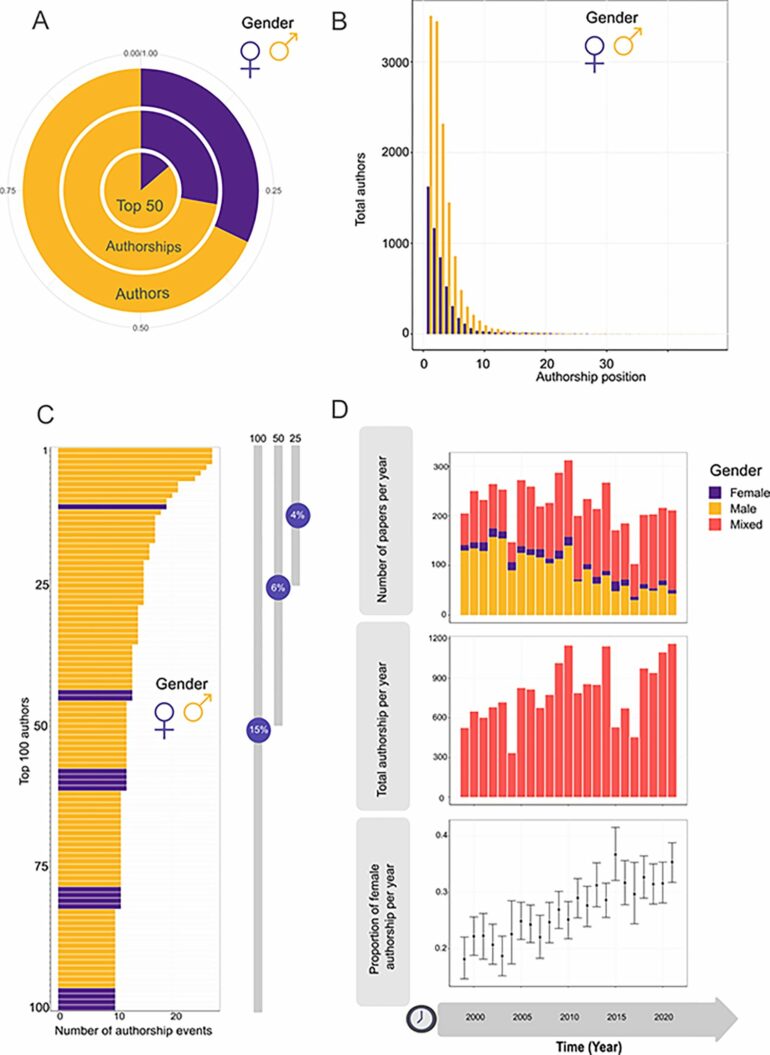Women working in the field of ecology contribute overproportionately to research output, as shown by a recent study that reveals facets of gender bias in the context of scientific publications that have received little attention until now.
According to the study, 30% of authors in Ecology, a leading journal in the field, are women. Their contributions exceed expectations based on productivity levels in scenarios where gender bias is factored out.
The study was conducted by a team of international researchers led by Gabriela Fontanarrosa (Instituto de Biodiversidad Neotropical/IBN-CONICET) and Lucía Zarbá (Universidad Nacional de Tucumán/INTEPH CONICET-UNT) with significant contributions from professor of geography María Piquer-Rodríguez of Freie Universität Berlin. The article was published in PLOS One .
The study, titled “Over Twenty Years of Publications in Ecology: Over-Contribution of Women Reveals a New Dimension of Gender Bias
“Our findings call into question the very idea of competitiveness in science,” says first author Fontanarrosa, a researcher at IBN-CONICET in Argentina.
Key findings of the study
Women contribute more: Even though women contribute more to scientific publications in ecology when compared with an output model that excludes gender bias, they still remain underrepresented as authors. This phenomenon, known as overcompensation, suggests that women in science strive to counteract systemic, gender-related bias by producing more than their male colleagues.
Gender demographics are changing slightly: The study shows that there has been a steady increase in the number of women authors over the last two decades, as well as a greater number of mixed gender research teams. However, research conducted solely by women remains rare.
Overcontribution as overcompensation: The authors argue that this kind of overcontribution may well be a form of overcompensation through which women, in response to the pressure they face, try to outperform their male colleagues in order to achieve equal standing and recognition. This dynamic indicates that gender bias continues to be an issue in research despite women contributing more.
“The entire science system is often seen as objective and neutral, even though it perpetuates inequity. Women feel that they have to work harder in order to receive the same recognition that men receive,” says Professor Piquer-Rodríguez of the Institute of Geographical Sciences, Freie Universität Berlin.
The study provides women in research with a basis for further scholarly investigations into how gender bias impacts other academic disciplines. It also aims to motivate institutions to rethink how they assess and support women in science.
More information:
Gabriela Fontanarrosa et al, Over twenty years of publications in Ecology: Over-contribution of women reveals a new dimension of gender bias, PLOS ONE (2024). DOI: 10.1371/journal.pone.0307813
Provided by
Freie Universitaet Berlin
Citation:
Study reveals gender gap in ecology research (2024, September 20)



